FC Metz
Football Club de Metz, commonly referred to as FC Metz or simply Metz (French pronunciation: [mɛs] ⓘ), is a French association football club based in Metz, Lorraine. The club was formed in 1932 and plays in Ligue 1, the first division in the French football league system, for the 2023–24 season after having been promoted as Ligue 2 runners-up for the 2022–23 season. They play their home matches at Stade Saint-Symphorien located within the city. The team is currently managed by László Bölöni. Despite never winning the top flight, they have won the Coupe de France twice and the Coupe de la Ligue twice.
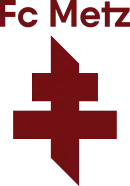 | ||||
| Full name | Football Club de Metz | |||
|---|---|---|---|---|
| Nickname(s) | Les Grenats (The Maroons)[1], Les Graoullys | |||
| Founded | 1932 | |||
| Ground | Stade Saint-Symphorien | |||
| Capacity | 25,636[2] | |||
| President | Bernard Serin | |||
| Manager | László Bölöni | |||
| League | Ligue 1 | |||
| 2022–23 | Ligue 2, 2nd of 20 (promoted) | |||
| Website | Club website | |||
|
| ||||
History
FC Metz was founded in 1932 by the amalgamation of two amateur athletic clubs, and shortly thereafter became a professional team; it is one of the oldest professional football teams in France. Its roots trace back further, to the SpVgg Metz club, formed in 1905 when the city of Metz was part of the German Empire. SpVgg played in the tier-one Westkreis-Liga for a season in 1913–14, before the outbreak of the First World War stopped all play. Some players of this club were part of the Cercle Athlétique Messin in 1919, which went on to become FC Metz in 1932. Messin was a leading club in the Division d'Honneur – Lorraine, taking out league titles in 1920, 1921, 1922, 1924, 1926, 1927, 1929 and 1931.[3]
The club played in the French second division north from 1933, winning the league in 1935 and earning promotion to Ligue 1 for the first time.[4] The team became a mid-table side in the first division until the outbreak of the war interfered with play once more. FCM did not take part in the top-tier regional competitions in 1939–40.[5]
During World War II, the Moselle département being annexed by Germany, the club had to play under the Germanised name of FV Metz in the Gauliga Westmark. In the three completed seasons of this league from 1941 to 1944, the club finished runners-up each year.[6]
Despite the city of Metz being retaken by allied forces in autumn 1944, the club did not take part in French league football in 1944–45 but returned to Ligue 1 in 1945–46, to come 17th out of 18 clubs. An expansion of the league to 20 clubs meant, the team was not relegated and stayed at the highest level until 1950, when a last place finish ended its Ligue 1 membership. Metz was allowed to stay within Ligue 1 as a special privilege due to its catastrophic situation in the year following the war: the stadium had been damaged, almost beyond repair. The team had to start from scratch once again.
The club rebounded immediately, finishing second in Ligue 2, behind Lyon and returned to the first division. FC Metz made a strong return to this league, finishing fifth in its first season back. After this, the club once more had to battle against relegation season-by-season, finishing second-last in 1958 and having to return to Ligue 2. It took three seasons in this league before it could manage to return to Ligue 1 in 1961, but lasted for only one year in the top flight. FC Metz spent the next five seasons at second division level.
FC Metz ascended to the top level of French football once more in 1967; the team remained in the highest division until they were relegated in 2001, although they bounced back immediately and returned to the Ligue 1 the following year.
After losing the first leg of their 1984–85 European Cup Winners' Cup tie 4–2 to Barcelona at Stade Saint-Symphorien, FC Metz were widely expected to be thrashed at Camp Nou. However, a hat-trick from Yugoslav striker Tony Kurbos gave Les Grenats a shock 4–1 win in the second leg to send the French side through 6–5 on aggregate.
In 1998, the team competed in the qualifications to the UEFA Champions League, but lost in the third round to Finnish team HJK Helsinki. In 2006, FC Metz were relegated from Ligue 1, finishing at the bottom of the table, despite the regular presence of an extremely promising prospect, Miralem Pjanić, who would later be transferred to giants Lyon, for an astonishing fee of €7.5 million. At the end of the 2011–12 season, Metz finished 18th in Ligue 2 and were relegated to the Championnat National, the third tier of French football after a 1–1 draw with Tours at home on 20 May 2012, in very tense circumstances. Metz spent only one season at this level, rebuilding a team with iconic former player Albert Cartier as coach, winning promotion to Ligue 2, and then immediately finishing first and winning promotion to Ligue 1. Unfortunately, the team was relegated again to Ligue 2, but won promotion the next season. This time, Metz managed to secure a 14th place finish, ensuring another season in Ligue 1. For the 2017–18 Ligue 1 season, Metz endured a horrid campaign, losing eleven out of their first twelve matches. The club recovered later in the season but finished bottom of the table and were relegated back to Ligue 2.[7][8]
On 26 April 2019, Metz were promoted back to Ligue 1 at the first time of asking by finishing first in Ligue 2. The promotion was confirmed with a 2–1 victory over Red Star.[9] In the clubs first season back in the top flight, Metz finished 15th on the table followed by an improved 10th place finish the following season. In the 2021–22 Ligue 1 season, Metz finished 19th and were relegated back to Ligue 2.[10] The club were promoted back to Ligue 1 as Ligue 2 runners-up for the 2022-23 season.[11]
On Pentecost Sunday, May 29, 2023, there was a dispute at a youth football tournament on the field of SV Viktoria Preußen e.V. in the Eckenheim district of Frankfurt am Main between young players from FC Metz and JFC Berlin, in which a player from FC Metz killed a 15-year-old player from JFC Berlin.[12]
On 12 June 2023, LFP Decision that FC Metz secure promotion to Ligue 1 from 2023–24 season after Bordeaux against Rodez has been suspended and return to top flight after one year absence.
Stadium
FC Metz plays its home matches at Stade Saint-Symphorien, which has a capacity of 25,636. Thus, it is the largest venue dedicated to football in Lorraine.
Crest
Its official colours are grenat (maroon) and white, from which the team derives its nickname Les Grenats. The team's crest features the Lorraine cross, symbolic of the team's regional affiliation, and the dragon called the Graoully, which in local legend was tamed by Saint Clement of Metz.[13]
Youth academy
FC Metz also gained recognition in France and Europe for its successful youth academy, which produced star players including: Rigobert Song, Robert Pires, Louis Saha, Emmanuel Adebayor, Papiss Cissé, Miralem Pjanić, Kalidou Koulibaly, and Sadio Mané. The city's proximity to Luxembourg (about 55 km) plays a significant role in the importation of young prospects. The club's board has close ties with the Luxembourgish Football Federation. Nicolas "Nico" Braun, the team's top all-time goalscorer, as well as Pjanić or, closer to our times, Chris Philipps, have played in the G-D's amateur leagues before joining "les Grenats". Despite this, not all Luxembourgers enjoy success with Metz, with Robert "Robby" Langers as the best example.
FC Metz in European football
Honours
FC Metz has never won the French championship; its best result was a second-place finish in 1998, behind RC Lens. The title race lasted until the ultimate fixture, however Metz never recovered from a 0–2 loss against Lens on their home turf. Metz won the Coupe de France twice, in 1984 and 1988, the first of these victories enabled it to qualify for the European Cup Winners' Cup where it achieved arguably the team's greatest moment, an upset of FC Barcelona in the first round of the competition in October 1984. It lost 4–2 at home in the first leg but won 4–1 away in the return leg, thus qualifying 6–5 on aggregate, making the FC Metz unique among the French teams who have beaten Barcelona at the Nou Camp. FC Metz also won the Coupe de la Ligue twice, in 1986 and 1996, and has made a total of ten appearances in European tournaments.
- Runners-up (1): 1997–98
- Runners-up (1): 1999
Players
Current squad
- As of 1 September 2023[14]
Note: Flags indicate national team as defined under FIFA eligibility rules. Players may hold more than one non-FIFA nationality.
|
|
Out on loan
Note: Flags indicate national team as defined under FIFA eligibility rules. Players may hold more than one non-FIFA nationality.
|
|
Notable players
Below are the notable former players who have represented Metz in league and international competition since the club's foundation in 1932. To appear in the section below, a player must have played at least a full season for the club.
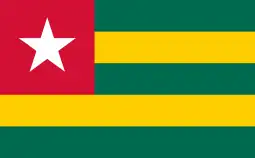 Emmanuel Adebayor
Emmanuel Adebayor Wilmer Aguirre
Wilmer Aguirre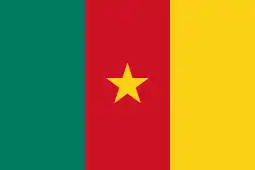 Sébastien Bassong
Sébastien Bassong Patrick Battiston
Patrick Battiston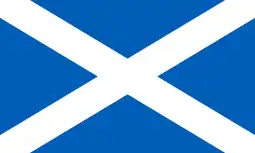 Eric Black
Eric Black Jocelyn Blanchard
Jocelyn Blanchard.svg.png.webp) Danny Boffin
Danny Boffin Nico Braun
Nico Braun Albert Cartier
Albert Cartier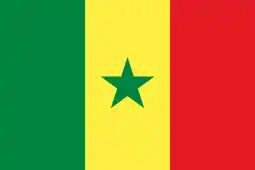 Papiss Cissé
Papiss Cissé Hugo Curioni
Hugo Curioni Mathieu Dossevi
Mathieu Dossevi Michel Ettore
Michel Ettore Philippe Gaillot
Philippe Gaillot.svg.png.webp) Daniel Gygax
Daniel Gygax Philippe Hinschberger
Philippe Hinschberger Szabolcs Huszti
Szabolcs Huszti.svg.png.webp) Božo Janković
Božo Janković Ahn Jung-hwan
Ahn Jung-hwan Henryk Kasperczak
Henryk Kasperczak Sylvain Kastendeuch
Sylvain Kastendeuch Eiji Kawashima
Eiji Kawashima Kalidou Koulibaly
Kalidou Koulibaly Lionel Letizi
Lionel Letizi Sadio Mané
Sadio Mané Frédéric Meyrieu
Frédéric Meyrieu Faryd Mondragón
Faryd Mondragón Tressor Moreno
Tressor Moreno Marcel Muller
Marcel Muller Ludovic Obraniak
Ludovic Obraniak Oguchi Onyewu
Oguchi Onyewu Michele Padovano
Michele Padovano Pascal Pierre
Pascal Pierre Robert Pires
Robert Pires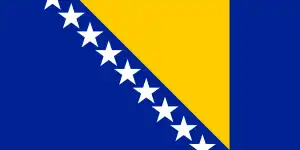 Miralem Pjanić
Miralem Pjanić Grégory Proment
Grégory Proment André Rey
André Rey Franck Ribéry
Franck Ribéry Jean-Philippe Rohr
Jean-Philippe Rohr Louis Saha
Louis Saha Franck Signorino
Franck Signorino Rigobert Song
Rigobert Song Jacques Songo'o
Jacques Songo'o Luc Sonor
Luc Sonor Jeff Strasser
Jeff Strasser Marian Szeja
Marian Szeja Sylvain Wiltord
Sylvain Wiltord Bernard Zénier
Bernard Zénier
Current technical staff
| Position | Name |
|---|---|
| Manager | László Bölöni |
| Assistant manager | Jean-Marie De Zerbi Benoît Tavenot |
| Goalkeeping coach | Christophe Marichez |
| Physical trainer | Florian Simon |
| Head doctors | André Marie Éric Sitte |
Managerial history
- Willibald Stejskal (1932–33)
- Ted Maghner (1937–38)
- George Kimpton (1938)[15]
- Paul Thomas (1938–39)
- Peter Fabian (1940–41)
- Charles Fosset (1944–45)
- Bep Bakhuys (1945–46)
- François Odry (1946)
- Ted Maghner (1946–47)
- Nicolas Hibst (1947)
- Charles Fosset (1947–49)
- Oscar Saggiero (1949–50)
- Ignace Kowalczyk (1950)
- Emile Veinante (1950–51)
- Elie Rous (1951–52)
- Emile Rummelhardt (1952–55)
- André Watrin (1955)
- Jacques Favre (1955–58)
- Marcel Tomazover (1958)
- Désiré Koranyi (1958–59)
- Robert Lacoste (1959)
- Jules Nagy (1959–63)
- Jacques Favre (1963–66)
- Max Schirschin (1966–67)
- Max Schirschin and René Fuchs (1967–68)
- Pierre Flamion (1968–70)
- René Fuchs (1970–71)
- Jacques Favre and Georges Zvunka (1971–72)
- René Vernier (1972–75)
- Georges Huart (1975–78)
- Marc Rastoll (1978–79)
- Marc Rastoll and Jean Snella (1979–80)
- Henryk Kasperczak (1980–84)
- Marcel Husson (1984–89)
- Henri Depireux (1989–Dec 89)
- Joël Muller (Dec 1989–Dec 2000)
- Albert Cartier (Dec 2000–Jan 2002)
- Francis De Taddeo (Jan 2002)
- Gilbert Gress (Jan 2002–02)
- Jean Fernandez (2002–05)
- Joël Muller (2005–06)
- Francis De Taddeo (2006–07)
- Yvon Pouliquen (2007–10)
- Joël Muller (2010)
- Dominique Bijotat (2010–12)
- Albert Cartier (2012–15)
- José Riga (2015)
- Philippe Hinschberger (2015–17)
- Frederic Hantz (2017–18)
- Frédéric Antonetti (2018–19)
- Vincent Hognon (2019–2020)
- Frédéric Antonetti (2020–2022)
- László Bölöni (2022–present)
References
- "#144 – FC Metz : les Grenats" (in French). Footnickname. 3 July 2020. Retrieved 22 December 2021.
- "Stade Saint-Symphorien". Football Club de Metz. 28 July 2015.
- France – Division d'Honneur – Lorraine 1919–1932 rsssf.org, accessed: 17 May 2009
- France – List of Final Tables Second Level rsssf.org, accessed: 17 May 2009
- France – First Division Results and Tables 1932–1998 rsssf.org, accessed: 17 May 2009
- French clubs in the German football structure 1940–1944 rsssf.org, accessed: 31 May 2008
- "Ligue1.com - Bordeaux snatch last European place". Archived from the original on 23 May 2018.
- "Ligue1.com - Amiens see off Metz". Archived from the original on 23 May 2018.
- "John Boye's FC Metz secures promotion to Ligue 1". www.modernghana.com.
- "METZ BOSS FRÉDÉRIC ANTONETTI OPEN TO CONTINUING DESPITE RELEGATION TO LIGUE 2". www.getfootballnewsfrance.com.
- "Metz Does the Job, Promotion Still Pending". BeIN SPORTS. Retrieved 5 June 2023.
- "Teenage footballer tragically dies following altercation with opponent after youth match".
- The Graoully, symbol of Metz Archived 22 May 2011 at the Wayback Machine
- "Effectif et staff". FC Metz.
- "France - Trainers of First and Second Division Clubs". RSSSF.
